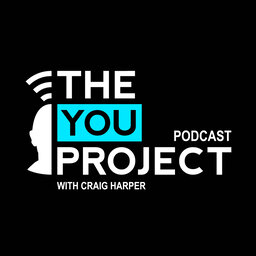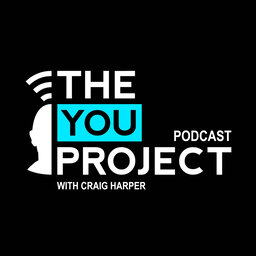#1610 Don't Get In Meggie's Way - Meggie Palmer
Meggie Palmer spent fifteen years as a journalist and foreign correspondent in Europe, the USA and Australia, working for BBC World, CNBC, SBS Dateline, Channel 7, Channel 10, SKY, Vogue, Marie Claire and News Corporation. She is a founder, speaker, journalist, and proud Aussie who now calls New York City home. She founded ‘PepTalkHer’ and is on a mission to close the gender pay gap. She travels globally speaking and helping companies with retaining female leaders and diversity. Meggie is a human dynamo, a self-confessed workaholic, a fighter for equality, a problem solver, an outside-the-box thinker and a brilliant communicator, and I loved our chat.
peptalkher.com
 The You Project
The You Project


